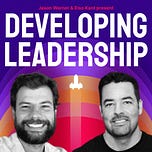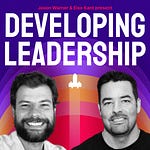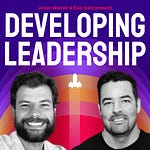Jason and Eiso share their love-hate relationship with OKRs and discuss the pedantic nature of setting objectives and how they ultimately help to align and empower organizations. They talk about setting and tracking goals, the often performative nature of OKRs, and the dangers of abstracting oneself away from the product you’re building.
💬 A few of our favorite moments from the chat
The notion of setting objectives and empowering an organization bottom up is why I love OKRs. But the reality of it is that they seem to only work for the person who also shows up every day at 6:00 AM to the gym. And they don't really work for everyone else.
You can abstract yourself away from the actual thing that you're building and insulate it with a whole bunch of metrics and numbers that make everyone feel incredibly good, that you're doing the right sorts of things, and literally have no idea what is going on.
I don't think goal setting's natural to every person, in fact, I don't think goal setting's natural to most organizations, because of the people who tend to run them react as opposed to plan and think about this.
OKRs are a symptom of a higher level thing: at the exec level we don't know how to run companies. How many executives are looking at a spreadsheet that's saying the project is on track, it's green, as opposed to seeing the product, as opposed to seeing the features being built, as opposed to seeing the day-to-day progress or the week-to-week progress of that thing.
💡 Topic Explainers
📊 Radford Global Leveling
During the discussion about how some companies use tools without considering their practicality, Jason mentions the Radford Levelling as an example. He explains that some companies view these tools as a safety net, allowing them to do whatever they want without thinking about the consequences.
Radford's approach for determining salaries is based on aligning job levels with their value to the company and the market. The system groups employees into global grades based on what the market pays for similar positions, taking into account both individual contributor and managerial roles.
Here’s an example of how different job families are graded and grouped into two tracks, one for management, and one for individual contributors:
📘 High Output Management
"High Output Management" is a book by Andrew S. Grove, the former CEO of Intel and father of OKRs. The book is an essentially a guide to OKRs, and how they can help managers boost their org’s productivity.
Jason mentions the book in the episode, and cautions about taking it off the shelf and adopting it in your org without considering your context.
Join the discussion and follow us on twitter @ devleadership_
Watch this episode on Youtube: https://youtu.be/QFMrJQ3m7BU
Developing Leadership is powered by Athenian. We are introducing a winning approach to engineering metrics that can help you empower your teams to autonomously improve. If you want to learn more, go to athenian.com












